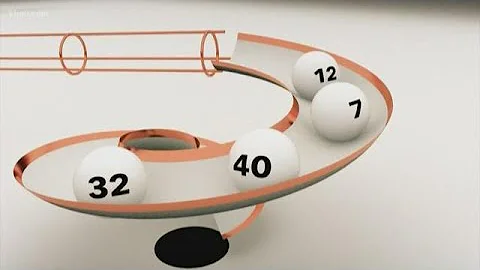"Those who are good at fire will be burned, and those who are good at water will be drowned." This sentence is vividly reflected in Professor Wang Lei.
Professor Wang Lei has been engaged in the field of cancer treatment for 27 years. At that time, he was the vice president of the Sixth Affiliated Hospital of Sun Yat-sen University and the director of the Anorectal Surgery Department. He is a senior expert on colorectal cancer in China. Under his treatment, thousands of anorectal cancer patients recovered and regained hope.
But who would have thought that such an oncologist would lose his life to cancer at the age of 50.

A physical examination revealed that the cancer king was in the advanced stage
In 2017, Wang Lei had continuous back pain and colds, and the good times did not last long. The doctor suggested that he see a traditional Chinese medicine doctor. Traditional Chinese medicine believes that the kidney is the foundation of innateness and is the most important organ in a person's life. First, Wang Lei's condition was caused by insufficient kidney energy. Wang Lei, who was busy at work, thought he was just too tired, so he didn't pay much attention to it.
During an employee physical examination in early 2018, Wang Lei was told to do a new project - CEA detection based on the tumor marker . Wang Lei then further conducted a comprehensive examination and was finally diagnosed with advanced pancreatic cancer, and the cancer cells had spread to the liver. He was only 49 years old at that time.
After reading the examination report, Wang Lei knew the severity of the condition. If not treated, he might only live for a month or two. If treated aggressively, it can only last two to three years at most.

After careful consideration, Wang Lei decided to take active treatment. In April 2018, Wang Lei lay on the operating bed he was most familiar with and underwent more than 10 hours of surgery. After the operation, Wang Lei was very weak and could only lie on the hospital bed to recuperate, but he did not. It wasn't long before he returned to work.
A thought-provoking reflection before his death
Wang Lei is a well-known workaholic. While fighting pancreatic cancer for more than a year, he never stopped working. Not long after the operation, he returned to the hospital to work, even though Although he was unable to eat on his own, he continued to receive treatment as usual and never took a day off.
Even if he knew it was only three months in advance, and even if he endured the pain of cancer, Wang Lei still accepted it calmly and faced life positively.
went to the podium of the American Clinical Oncology Congress to deliver the only oral report in Chinese on the digestive tract 2 months after the operation.

Wang Lei struggled with the disease for 15 months and created the miracle of life.
"If it had been slower, maybe it wouldn't have been the ending today!"
This is what Professor Wang Lei, a 50-year-old oncologist, said to his wife while lying on the hospital bed, full of regret in his heart.
The early symptoms of pancreatic cancer should be understood as soon as possible
 . Sudden weight loss
. Sudden weight loss
Many people think that sudden weight loss or sudden weight gain must be caused by problems with certain organs and functions of the body. If the patient's weight suddenly drops, the weight will increase. If the number reaches more than 15 kilograms, then you should pay attention!
This may be caused by early pancreatic cancer. Weight loss, loss of appetite, and conditions in the digestive tract will affect the patient's nutrient absorption, because the pancreas is not only a digestive organ, it is also an endocrine organ, which is what causes weight loss. reason.

2. Neurological symptoms
In the later stages of pancreatic cancer, patients will suffer from severe insomnia, anxiety and depression. This is because the continuous development of the tumor causes large-scale oppression and invasion of the patient's nervous system, causing the patient to develop symptoms. Neurological symptoms affect personal health.
3. Abdominal pain
Pain is the main symptom of pancreatic cancer, and regardless of whether the cancer is located in the head or tail of the pancreas, most patients present with upper abdominal pain , and 85% of these patients who show pain are inoperable; Resection may have progressed.
Pain generally has nothing to do with diet. Most of the pain is mild at first, and then becomes persistent and gradually worsens. Due to the different location of the cancer and the mechanism of pain, abdominal pain can show various manifestations. The degree ranges from fullness and discomfort, dull pain to severe pain. There is radiating pain, pancreatic head cancer mostly radiates to the right side, while most body and tail cancers radiate to the left side.

4, Jaundice
Because pancreatic cancer often blocks the duodenum and ampulla, preventing bile from being discharged, causing jaundice, yellowing of the skin and sclera, and yellow urine but white stool. , is the so-called clay-like stool.
How long can one generally live with pancreatic cancer?
Pancreatic cancer generally can survive for 5 to 10 years, and the diagnosis depends on the progression of the disease.
Pancreatic cancer is pancreatic tumor . It is generally highly malignant and may be precancerous lesions or genetic abnormalities. It mainly appears in upper abdominal discomfort or abdominal pain and other symptoms. If detected early and timely, and cooperated with the doctor for active treatment, the cure rate It is relatively high, mostly 10 years to more than 10 years.
Since the location of the pancreas is relatively secretive, located behind the stomach, its clinical symptoms cannot be effectively distinguished from gastric or intestinal diseases. In addition, clinical testing methods were relatively low in the past. Once pancreatic cancer is found, it usually belongs to the middle and late stages of the disease. At present, pancreatic cancer in the middle and late stages is The overall clinical cure rate is relatively low.

According to statistics, the 5-year average survival rate of small pancreatic cancer can reach about 30%. In short, pancreatic cancer is difficult to detect early, and often has distant metastasis after discovery. It is difficult to completely remove it with surgery. Radiotherapy and chemotherapy are relatively insensitive. , so the prognosis is poor among common malignant tumors.
recommends that patients with pancreatic cancer should not lose confidence in treatment, actively cooperate with doctors for examinations, and go to the hospital for regular reexaminations to observe whether metastases and primary lesions appear, which is conducive to early treatment.







![[SEASON 1] A porter with a limp leg gets reborn as the family's pushover | Manhwa Recap - DayDayNews](https://i.ytimg.com/vi/oPlBc5apALE/hq720.jpg?sqp=-oaymwEcCNAFEJQDSFXyq4qpAw4IARUAAIhCGAFwAcABBg==&rs=AOn4CLBSMJp42kE6Cqwyq9f_lYLvY7Fx0A)













